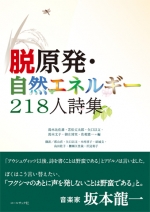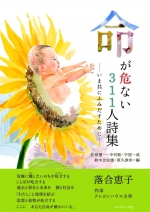verse, prose, and translation
Delfini Workshop
高木仁三郎の言葉(25)

高木仁三郎の言葉 #27
とりわけ事故で一番の打撃を受け、それゆえに最も敏感に反応したのは子供たちだったかもしれない。「五歳の子供がニュースを聴く、六歳はデモをし、七歳は砂、草、花(の汚染)を心配する」と西ドイツの週刊誌Sternは伝えている。これは決して誇張ではなかったろう。飲食物は厳しく制限され、遊び場は閉鎖され、雨の日には学校や幼稚園にも行けず家の中に閉じ込められた子供も少なくなかった。各地で中学生や高校生の原発反対デモが行われ、なかには学齢期前の子供たちが、親たちに付き添われて、遊び場や食品の放射能測定をきちんと行うように国や自治体に要求した行動もあった。Stern誌などに紹介されている子供たちの発言を読むと、これらの幼い人たちの行動が、決して大人たちに仕組まれたものではなく、ごく自然なものであったことがわかる。
高木仁三郎セレクション pp.64-65
The words of Jinzaburoh TAKAGI(1938-2000), people's scientist against nuclear power#27
It might be children that got the hardest hit from the accident and therefore was the most responsive. The Stern, a magazine in West Germany said,” five-year old children listen to the news, six-year old demonstrate, and seven-year old worry about the pollution of sand, grass, and flowers.” It could be never exaggerated. There were not a few children who were locked in their houses in rainy days without going to school and kindergarden, with closed playgrounds, under strict food and drink control. There were demos against nuclear power plants everywhere by junior high school students and high school students, among them there were also activities demanding for the proper radioactivity-measure of food and playgrounds to the government and local governments by preschool-age children who were accompanied by their parents. I find it perfectly natural that these activities were implemented by young children, not fixed by adults from what they said in the Stern and so on.
Jinzaburoh TAKAGI selection pp.64-65
コメント ( 0 ) | Trackback ( 0 )











